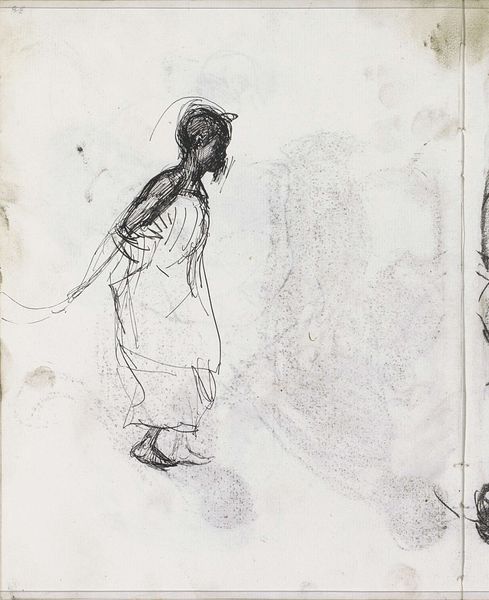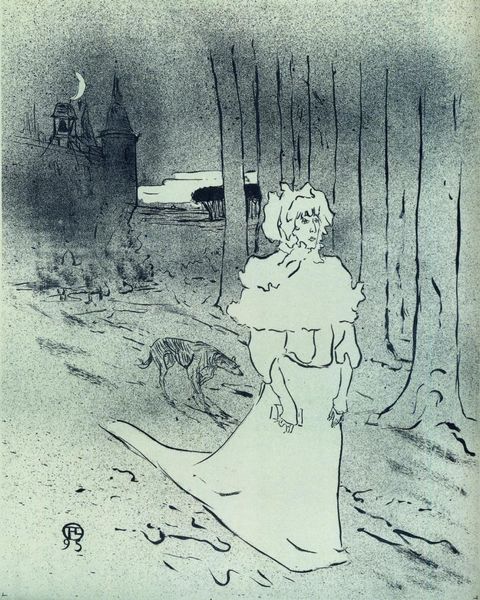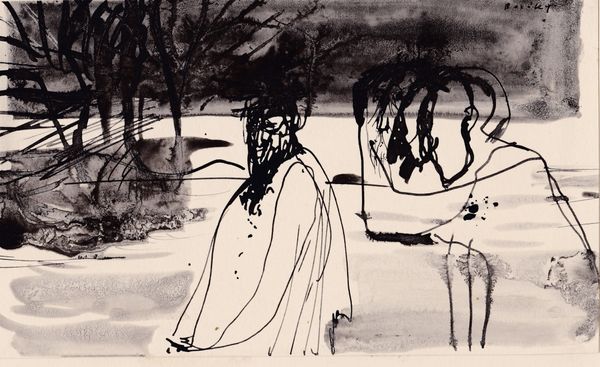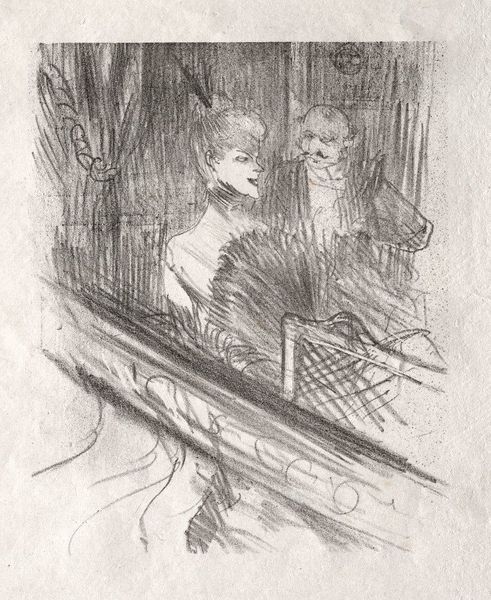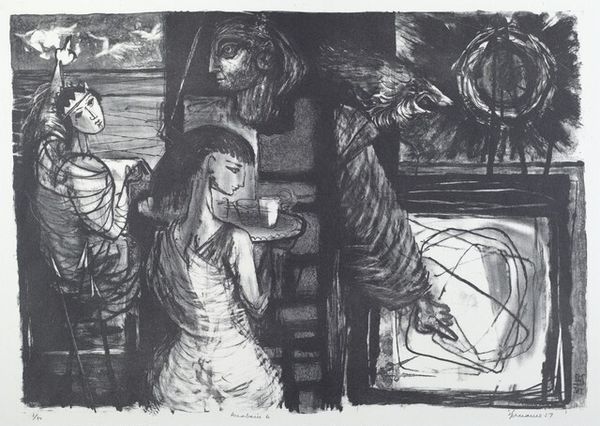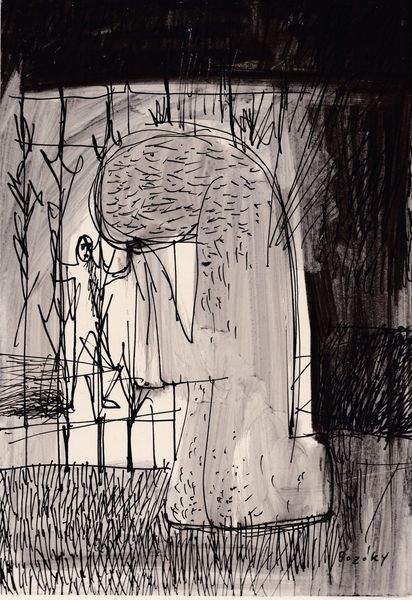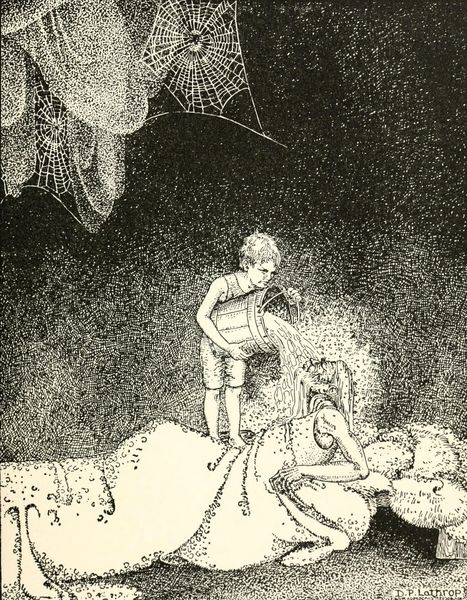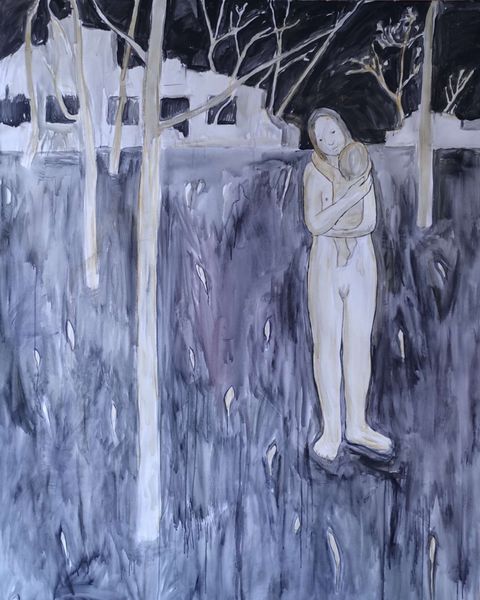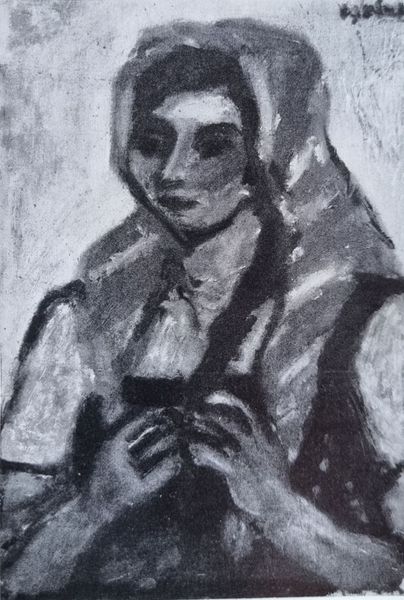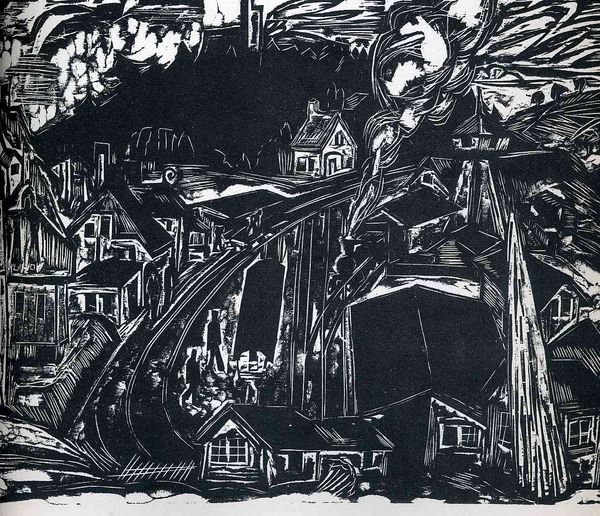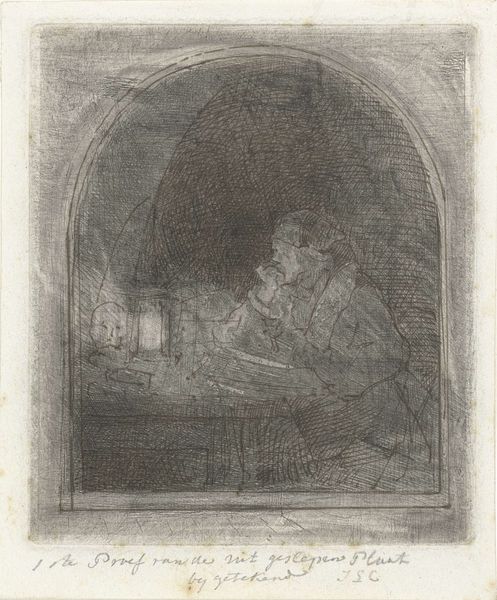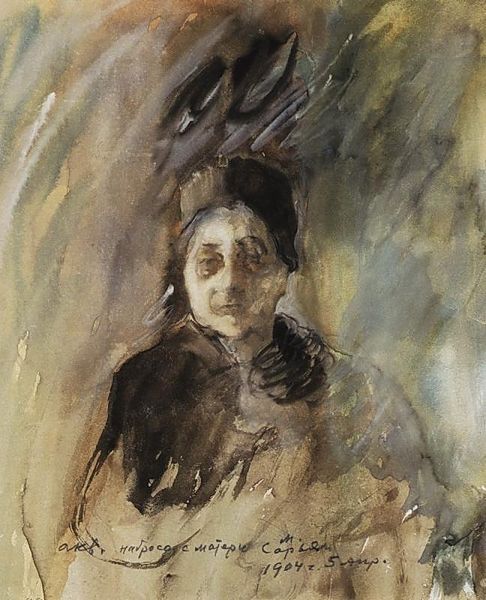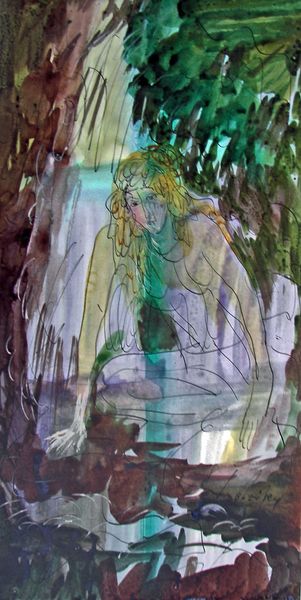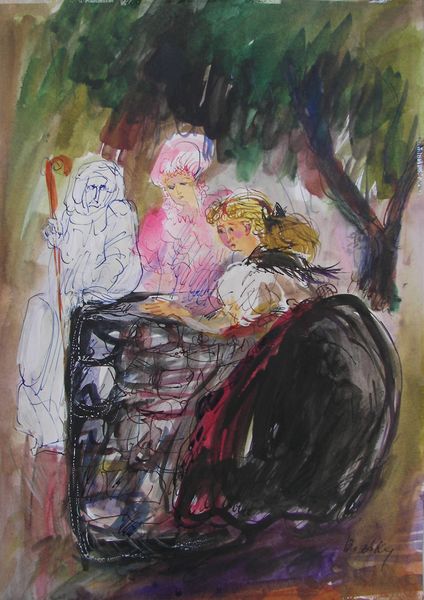
drawing, charcoal
#
portrait
#
drawing
#
charcoal drawing
#
expressionism
#
russian-avant-garde
#
portrait drawing
#
charcoal
#
monochrome
Copyright: Public domain
Editor: Here we have Mikhail Nesterov's charcoal drawing, "Study to 'Harmony Concord'". It's a monochrome piece, quite striking in its simplicity. I’m curious, what's your perspective on this drawing? Curator: Looking at Nesterov's study, I'm drawn to the visible process. The raw charcoal, the smudges – it speaks volumes about the artist's hand, his labor. Do you see how the almost sketch-like quality disrupts the traditional notion of a polished, finished artwork? It hints at the social conditions of art creation. Editor: I see that. It feels like we're looking at a stage in the artwork's evolution rather than a completed masterpiece. Could this be interpreted as him commenting on labor, even though it’s a study? Curator: Absolutely. Nesterov presents us with the means of production. He’s making us aware of the effort, the physical act behind representation. In that context, consider the availability, cost, and perceived value of charcoal versus more 'refined' media like oil paint at the time. This choice reframes the conversation from mere representation to the materiality of art-making. Editor: That's fascinating, I never thought about the material value itself as part of the message. Does that tie into the avant-garde movement and its views of artistic labour? Curator: Exactly. The Russian avant-garde aimed to collapse hierarchies, including those separating high art from craft and the artist from the laborer. By showcasing the 'work' in the artwork, Nesterov potentially critiques established systems of art production and consumption. Editor: That gives me a totally new understanding of it! I see it now. The material isn't just a medium, but part of a wider socio-economic dialogue. Curator: Precisely! By paying attention to these elements, the means and mode of production, we begin to see how deeply embedded in its context this study truly is.
Comments
No comments
Be the first to comment and join the conversation on the ultimate creative platform.
